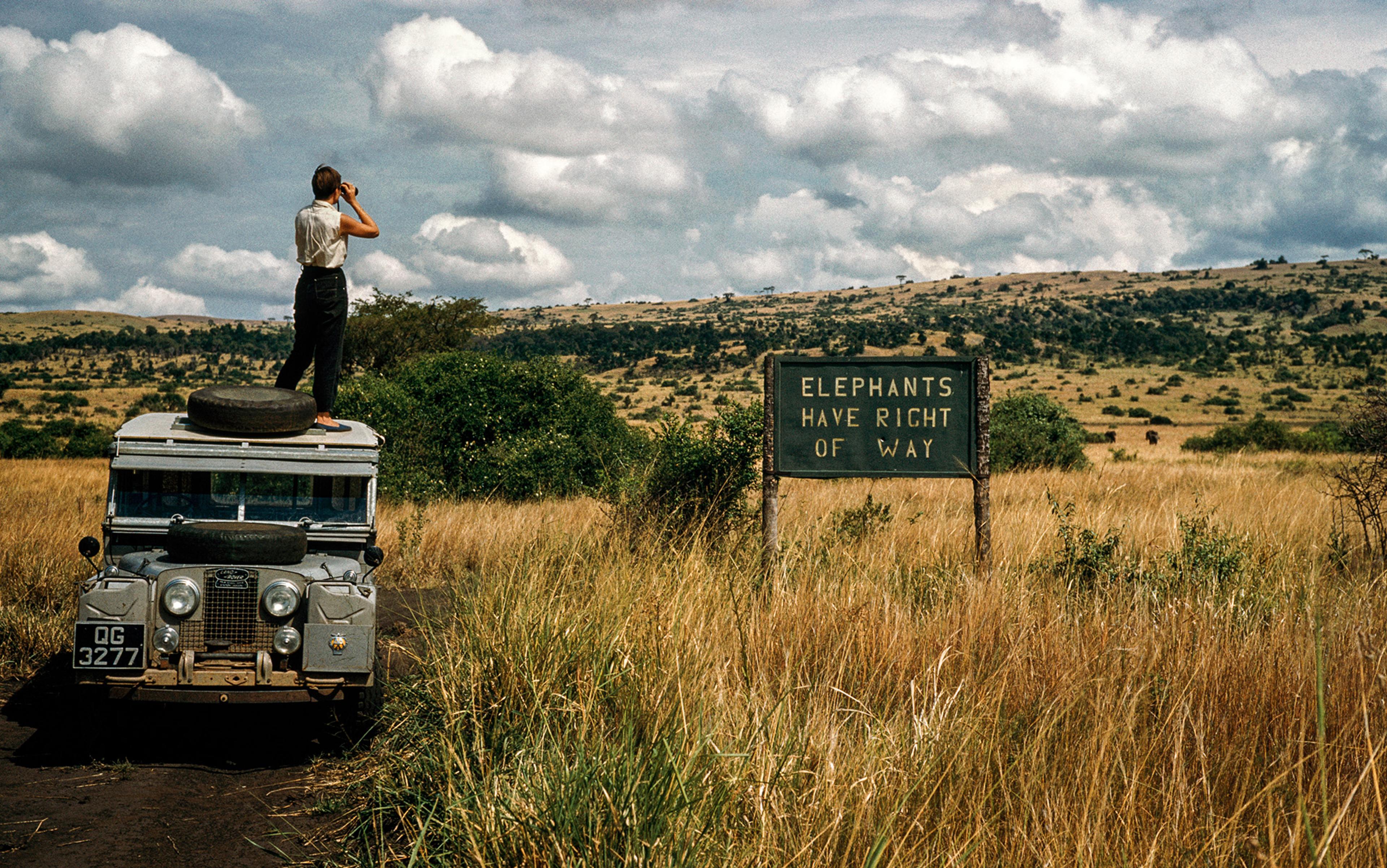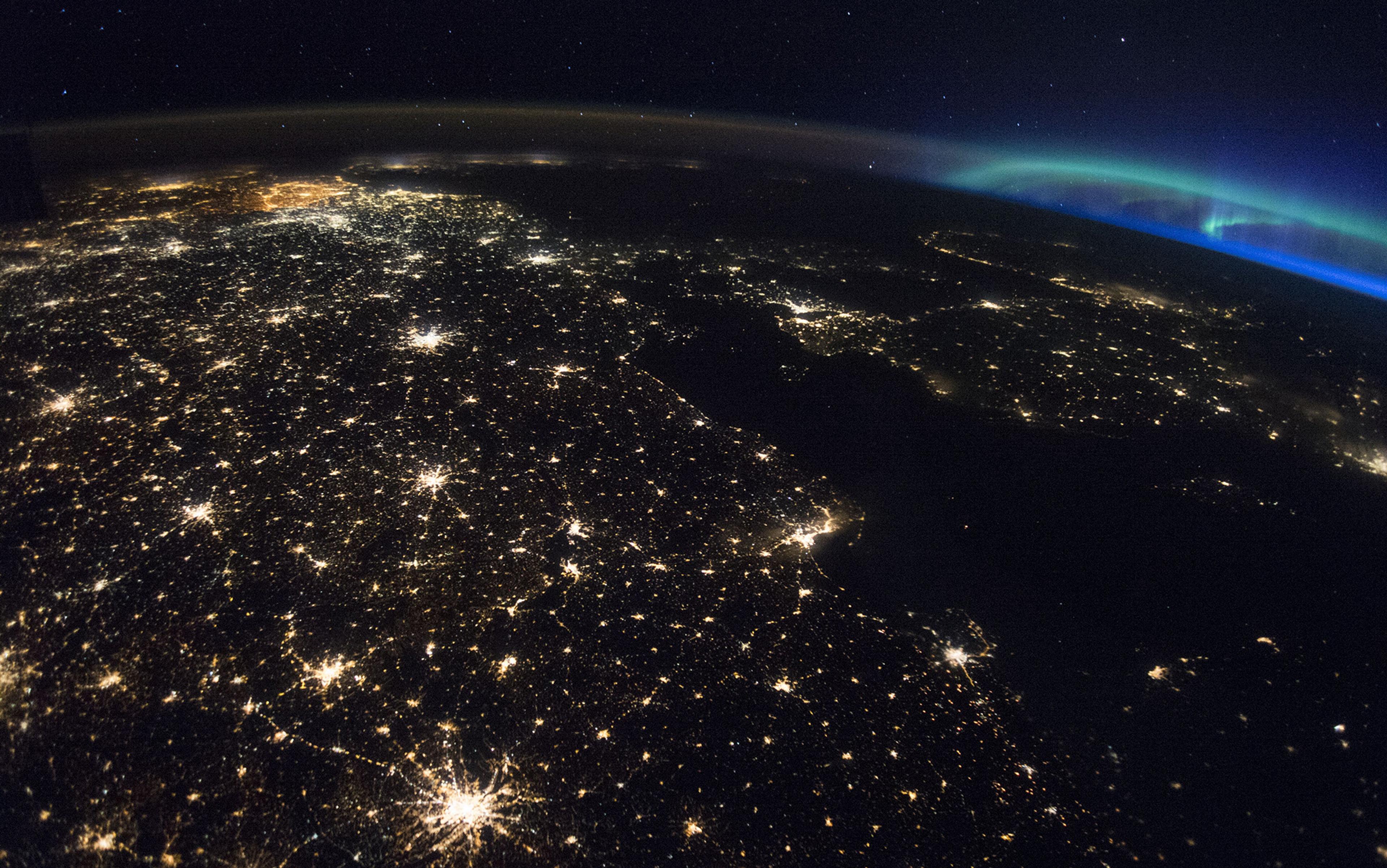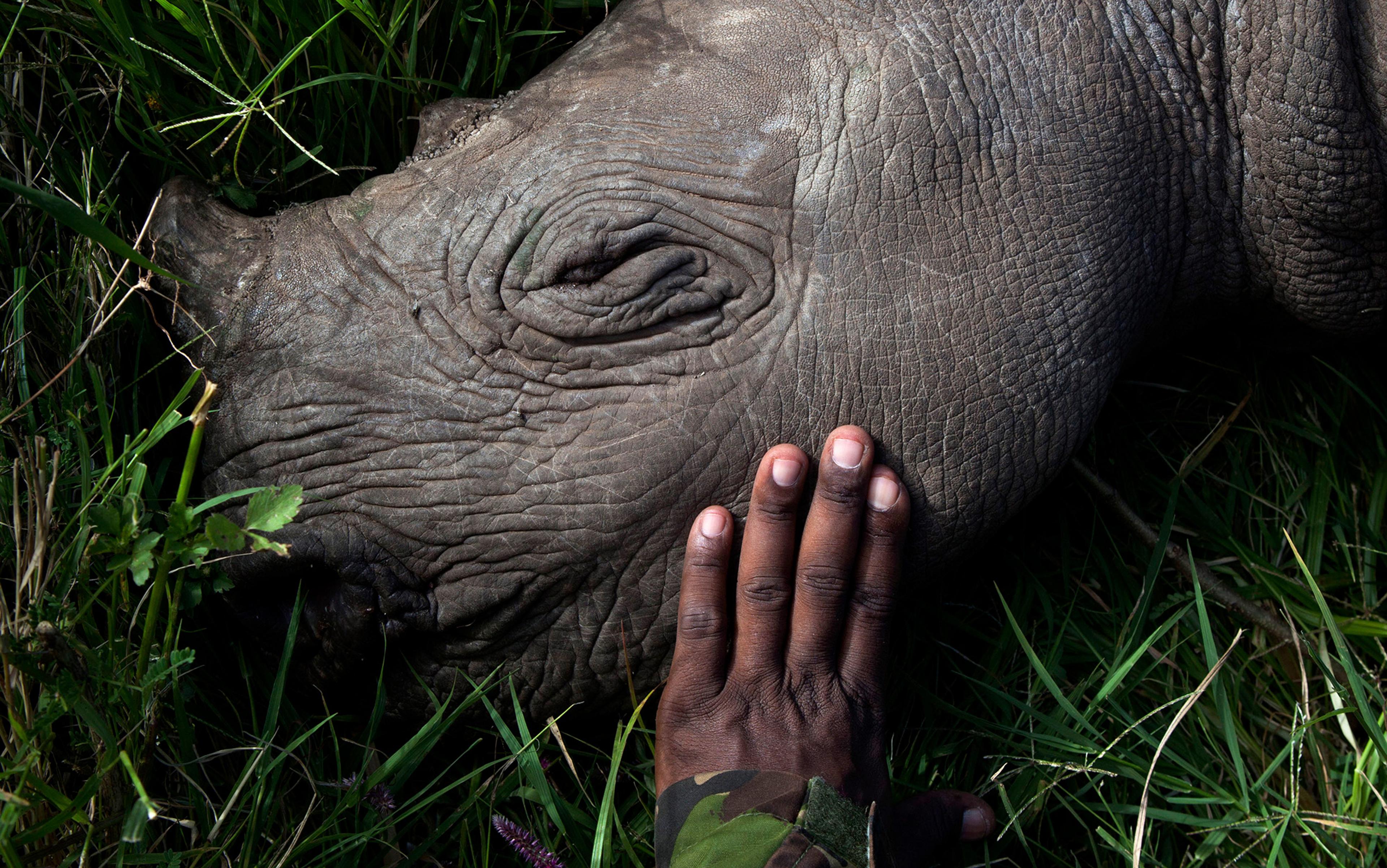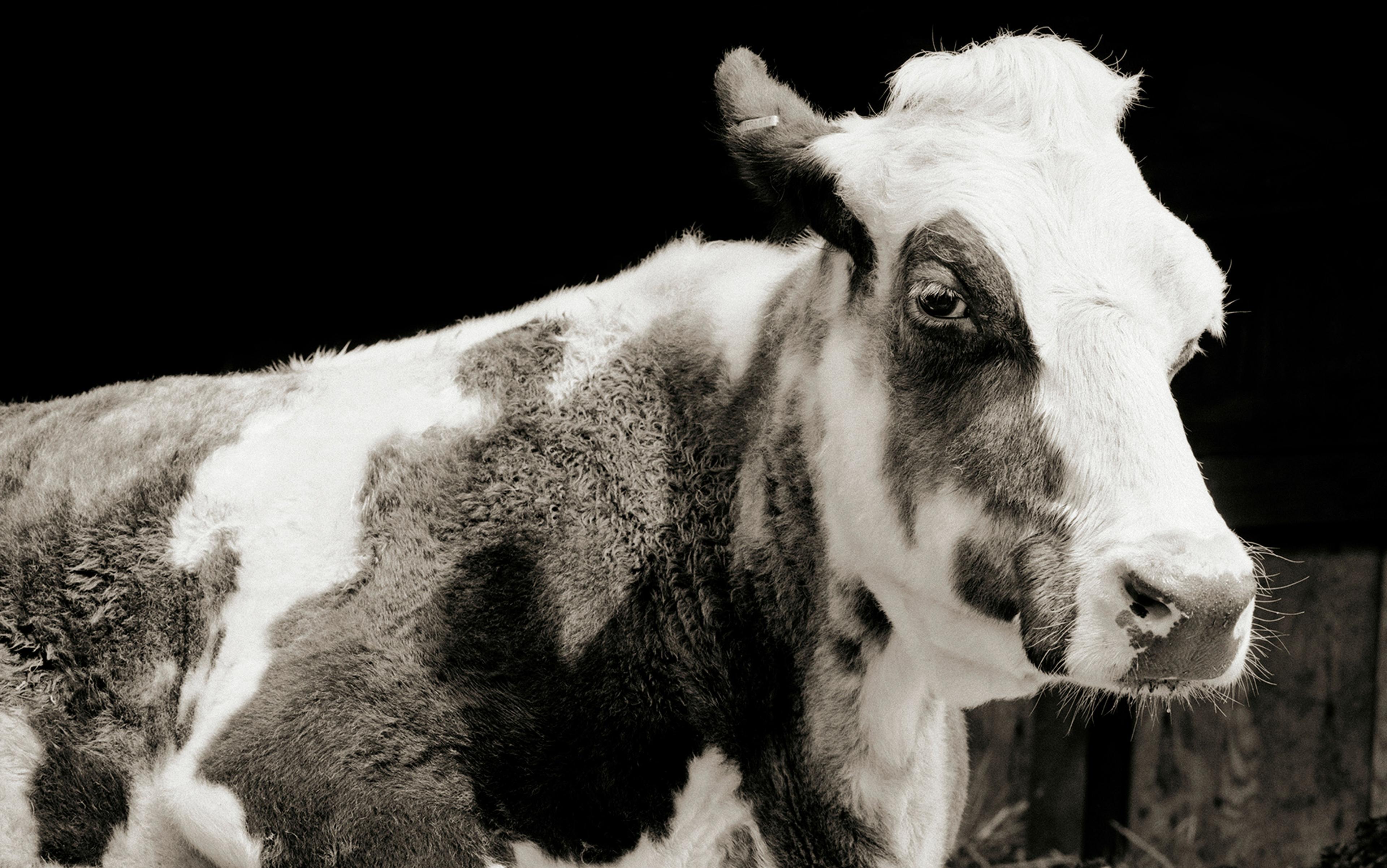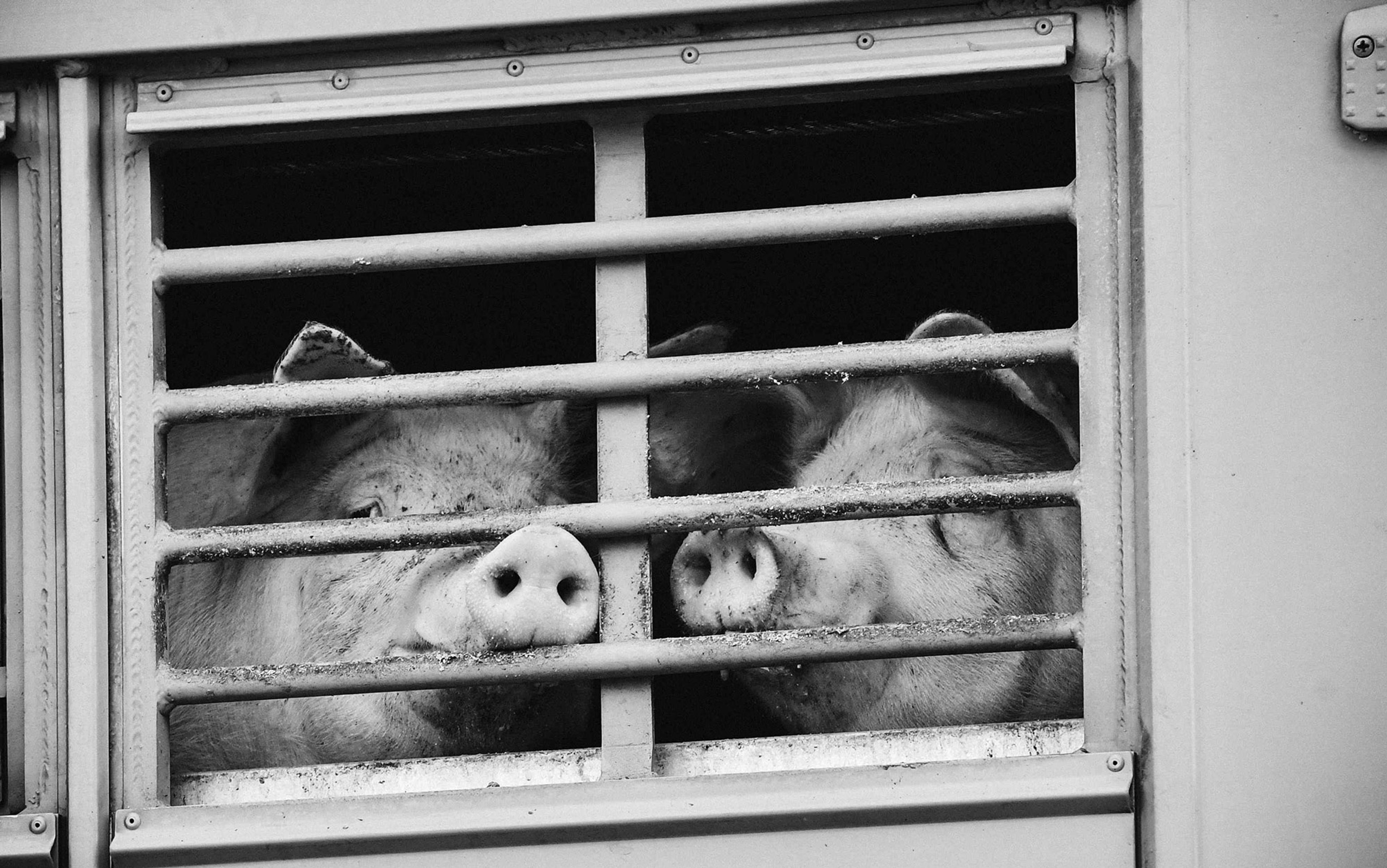This January, a 57-year-old man in Baltimore received a heart transplant from a pig. Xenotransplantation involves using nonhuman animals as sources of organs for humans. While the idea of using nonhuman animals for this purpose might seem troubling, many humans think that the sacrifice is worth it, provided that we can improve the technology (the man died two months later). As the bioethicists Arthur Caplan and Brendan Parent put it last year: ‘Animal welfare certainly counts, but human lives carry more ethical weight.’
Of course, xenotransplantation is not the only practice through which humans impose burdens on other animals to derive benefits for ourselves. We kill more than 100 billion captive animals per year for food, clothing, research and other purposes, and we likely kill more than 1 trillion wild animals per year for similar purposes. We might not bother to defend these practices frequently. But when we do, we offer the same defence: Human lives carry more ethical weight.
But is this true?
Most humans take this idea of human exceptionalism for granted. And it makes sense that we do, since we benefit from the notion that we matter more than other animals. But this statement is still worth critically assessing. Can we really justify the idea that some lives carry more ethical weight than others in general, and that human lives carry more ethical weight than nonhuman lives in particular? And even if so, does it follow that we should prioritise ourselves as much as we currently do?
Ethicists sometimes offer capacities-based arguments for ranking species according to a hierarchy. For example, in How to Count Animals, More or Less (2019) Shelly Kagan argues that we should assign human interests extra ethical weight because we have a higher capacity for agency and welfare than other animals. I have cognitive capacities that a pig lacks, so I have interests that they lack. I also have the capacity to experience happiness and suffering more intensely than a pig does, so I have stronger interests related to my welfare than they do.
Ethicists also offer relationship-based arguments for species hierarchies. For example, in ‘Defending Animal Research’ (2001), Baruch Brody argues that we should assign human interests extra ethical weight because we have special bonds and a sense of solidarity with members of our own species. According to this view, we should ‘discount’ the interests of nonhuman animals for the same reason that we should ‘discount’ the interests of future generations: we have special duties within these categories that we lack across them.
In response to these and other such arguments, some ethicists contend that we should reject species hierarchies entirely. For example, in Fellow Creatures (2018) Christine Korsgaard argues that it generally makes no sense to ask whether a human or a pig has a better life, because each species of animal has a different form of life, and we can evaluate each life only against the standards set by that form of life. Comparing humans and pigs is, literally, like comparing apples and oranges.
If anything, we increasingly have grounds for prioritising nonhuman animals
While I think that this rejection of species hierarchies is worthy of consideration, I want to defend a separate idea: even if we accepted a species hierarchy on capacities-based and relationship-based grounds, it would still not follow that our current stance of human exceptionalism is acceptable. We would need to think carefully about how much ethical weight different animals carry rather than simply assert that we take priority. And when we do, we might be surprised by what we find.
In particular, if we take our own arguments for human exceptionalism seriously, then the upshot is not that we always take priority but rather that we sometimes do. And when we consider the scale of nonhuman suffering and death in the world and the extent of our complicity in this suffering and death, we can see that human exceptionalism has it backwards: if anything, we increasingly have capacities-based and relationship-based grounds for prioritising nonhuman animals.
To be clear, my goal here is not to argue against a strong form of human exceptionalism, according to which humans necessarily matter more than nonhumans. If you think that any human interest, no matter how minor, takes priority over any nonhuman interest, no matter how major – that, for instance, scratching a single human itch takes priority over preventing 100,000 elephant deaths – then there are good arguments against your view, but they will not be my focus here.
My goal is instead to argue against a moderate form of human exceptionalism, according to which humans contingently matter more than nonhumans. If you are among the many who think that we take priority over other animals because of our ‘higher’ capacities and ‘stronger’ relationships, this is wishful thinking. There are too many nonhumans, and our lives are too intertwined with theirs, for that to be plausible. This ‘moderate’ view is not as ethical as you think.
Let’s examine these arguments for human exceptionalism one by one, starting with the capacities-based arguments.
Yes, I have a higher capacity for agency (that is, self-determination) than nonhuman animals. I can step back from my beliefs, desires and actions, and ask whether I have reason to endorse them. As a result, I can use evidence and reason to set and pursue long-term goals. In contrast, a worm is only able to do what seems natural from moment to moment, without ever stopping to assess these choices.
Why does this difference matter? Plausibly, agents have a wider range of interests than non-agents do, all else being equal. It would be bad for you to keep me in confinement, since I need to be able to set and pursue my own goals to live well. In contrast, it might not be bad for you to keep a worm in confinement (with proper care), since all they need is, say, air, moisture, darkness, warmth, food and other worms to live well.
I also have a higher capacity for welfare (that is, happiness, suffering and other such states) than many nonhuman animals. Since I have a more complex brain than a worm does, I can experience more happiness and suffering at any given time. And since I have a longer lifespan than a worm does, I can also experience more happiness and suffering over time – provided, of course, that I live a reasonably full life.
Why does this difference matter? Plausibly, beings with a higher capacity for welfare have more at stake than beings with a lower capacity for welfare, all else being equal. Even if it would be bad for you to keep a worm in confinement, it would be still worse for you to keep me in confinement. Each day of confinement would harm me more, and I would also have more days of confinement overall.
My own view is that these capacities-based arguments are reasonable, as far as they go. Setting priorities requires considering how much everyone has at stake in any given situation, and our capacities are part of what determines how much we have at stake. But these arguments fall far short of establishing even a moderate form of human exceptionalism. Human and nonhuman capacities overlap substantially, and setting priorities requires considering other factors, too.
African elephants have about three times as many neurons as humans, and they have comparable lifespans
First, we might not always have a higher capacity for agency than other animals. We all lack the capacity for rational reflection early in life, some of us lose this capacity later in life, and some of us never develop this capacity at all. Meanwhile, many nonhuman animals have the capacity for memory, emotion, self-awareness, social awareness, communication, instrumental reasoning and more. Human and nonhuman agency thus overlap substantially in practice.
Moreover, even when we do have a higher capacity for agency than other animals, this difference might be smaller than we think. Our views about agency are anthropocentric, in that we treat human agency as the standard against which all forms of agency should be compared. But while human agency is certainly impressive, nonhuman agency is impressive too. And if we studied nonhuman agency on its own terms, we might discover forms of self-determination that humans lack.
Likewise, we might not always have a higher capacity for welfare than other animals. If our welfare capacity is a simple function of our brain complexity and lifespan, then some nonhumans might have a higher welfare capacity than humans do. For example, African elephants have about three times as many neurons as humans, and they have comparable lifespans. So, based on this way of making comparisons, these animals have a higher welfare capacity than us.
Moreover, even when we do have a higher capacity for welfare than other animals, this difference might once again be smaller than we think. For all we know, our capacity for welfare might not be a simple function of our brain complexity and lifespan. We are still early in the study of animal minds. And while it might be that, say, twice as many neurons equals twice as much welfare capacity, it might also be that the difference in welfare capacity is larger or smaller than that.
In short, the capacities-based arguments fail to vindicate even moderate forms of human exceptionalism. If we think that humans can have strong interests even when we lack the capacity for rational reflection (as, of course, we should), then we should think that nonhumans can too. And if we give humans the benefit of the doubt in cases of uncertainty about how much happiness and suffering we can experience (as, again, we should), then we should do the same for nonhumans.
Other factors are relevant to how we set priorities, too.
For instance, even if a human has more at stake than a nonhuman in general, they might not have more at stake in particular cases. Suppose you can either save a human from a minor injury or save a pig from a major injury. In this case, it might be that you should save the pig.
Similarly, even if a human has more at stake than one nonhuman, they might not have more at stake than many nonhumans. Suppose you can either save a human from a minor injury or save 1,000 pigs from minor injuries. In this case too, it might be that you should save the pigs.
Finally, morality is about more than benefits and harms, at least in practice. We would never permit doctors to breed humans for their flesh or organs, since the rights of the ‘donors’ would trump the benefits for the recipients. Why not think that the same can be true for nonhumans?
This all raises serious doubts about human exceptionalism. We regularly impose major burdens on nonhumans in exchange for minor benefits for humans. The ‘harm’ to humans of eating plants instead of animals is nothing compared to the harm to an animal of being factory farmed.
We also regularly impose burdens on very many nonhumans for each human who benefits. We probably kill at least a trillion farmed and wild animals, not including insects, for food each year. This is more than the total number of humans who have ever existed – killed every year.
And we regularly use nonhumans in ways that we would never permit ourselves to use humans. This is not simply a matter of us saving ourselves instead of saving them (though we do that too): this is a matter of us exploiting and exterminating them on a global scale.
The upshot is clear. Even if we think that beings with a higher capacity for agency and welfare take priority over beings with a lower capacity for agency and welfare, all else being equal, we should still be sceptical that this difference justifies anything like our current behaviour.
But what about relationship-based arguments for human exceptionalism, which focus on how we relate to humans and other animals?
Many people believe that, at least in practice, we have both a right and a duty to prioritise ourselves and our communities. I should take care of myself before I take care of you, and I should also take care of my family before I take care of yours. And if we can exhibit this kind of partiality in the context of smaller groups such as families, perhaps we can do the same in the context of larger groups such as species.
In fact, some ethicists believe that the analogy holds not only for species but also for other large groups, like generations. They argue that we can ‘discount’ the interests of nonhuman animals and future generations, in part because we have closer relationships within these categories than beyond them, and in part because full impartiality for all sentient beings from now until the end of time would be too demanding.
This kind of argument is partly about our personal interests. If we allow morality to be too impartial, then our personal interests would carry very little relative weight. But they should carry at least a moderate amount of relative weight, both because we have a right to take care of ourselves and because we need to do that to take care of others. So, we should allow morality to be somewhat partial to create space for self-care.
This kind of argument is also partly about our relationships. We have special duties in the context of special relationships. I should take care of my family before I take care of yours because I have special bonds within my family. And the same can be true for larger groups like species and generations. So, we should allow morality to be somewhat partial to create space for our relational duties, too.
But even if we accept that these claims are true and that they extend to groups such as species and generations, we should still reject our current stance of human exceptionalism. There are many more individuals across species and generations than within a single one. And our lives are increasingly linked across species and generations in ways that have important implications for our interests and our relationships.
Suppose that I do, in fact, have a duty to take care of my family before I take care of yours, all else being equal. Does it follow that I can treat your family however I like? Of course not. It would be wrong for me to take food from your family to provide food for mine, particularly if my family already has much more food than yours does. It would also be wrong for me to kill your family so that I can provide my family with human flesh to eat instead of, say, rice and beans.
Deforestation, factory farming and the wildlife trade are hurting us right now
These points apply across species and generations, too. Humans are taking resources away from nonhuman animals and future generations, even though we already have much more than they do in many ways. We are also killing hundreds of billions of nonhuman animals for food each year in ways that impose health and environmental threats on future generations too – even when we have access to humane, healthful, sustainable plant-based alternatives.
Furthermore, many policies that would benefit nonhuman animals and future generations would benefit us, too. As the WHO’s One Health framework reminds us, human, nonhuman and environmental health are linked. We need to phase down industries such as deforestation, factory farming and the wildlife trade, not only for nonhuman animals and future generations but also for ourselves: waste, pollution, infectious diseases and other hazards from these activities are hurting us right now.
We should keep in mind that we have relational duties across species and generations, too. Many of us care about members of other species and generations: I dare anyone to try to matter to me more than my dog Smoky, and many parents feel the same way about their children, grandchildren and so on. And when our practices harm nonhuman animals and future generations, we have a relational duty to reduce and repair these harms whether we care about these individuals or not.
In short, relationship-based arguments fail to vindicate current forms of human and generational exceptionalism. Even if we have a right or duty to take care of ourselves and other current humans, we still need to treat nonhuman animals and future generations much better to accomplish that goal. We also need to treat them much better for their own sakes, especially when our activity is harming them. Our relational duties extend much farther than we might have thought.
When we weave these threads about capacities and relationships together, we reach a surprising conclusion: we should not only prioritise ourselves less but should perhaps not prioritise ourselves at all in some cases. After all, even if we discount the interests of nonhuman animals and future generations, these populations are still so large, and our practices are still impacting them so much, that their interests might still carry more ethical weight than ours do in the aggregate.
And when we weave the biological and generational arguments together, we reach an even more surprising conclusion: we should prioritise not only current nonhumans and future humans but also, and especially, future nonhumans. For instance, when we assess the impacts of the climate crisis, we should assign a lot of ethical weight to the impacts on other species. Which populations will expand and contract, and what will follow for the welfare of individual animals?
Granted, there might be a limit to how much we can prioritise current and future nonhumans at present, since we currently lack the knowledge, power and political will that we need to help them at scale. So we might need to prioritise ourselves now to be able to prioritise them later.
But even if we accept this pragmatic argument, we should still prioritise nonhuman animals much more than we do now. We are already capable of harming nonhuman animals much less and helping them much more, and in many cases, making these changes would benefit us, too. We should also keep in mind that there is a path dependence to how history unfolds. For better or worse, our successors will inherit the world that we create. So if we want our successors to have more impartial priorities, then we need to work to develop more impartial priorities, too.
The upshot is that we need to rethink our relationship with other animals from the ground up. When setting priorities across species, we have a responsibility to follow the best information and arguments where they lead, rather than assume a self-serving conclusion from the start.
And when we take our thumbs off the scales, we can expect the scales to shift. We should already be treating nonhumans much better and, eventually, we might even need to prioritise their interests and needs over our own. We should start preparing for that possibility now.
